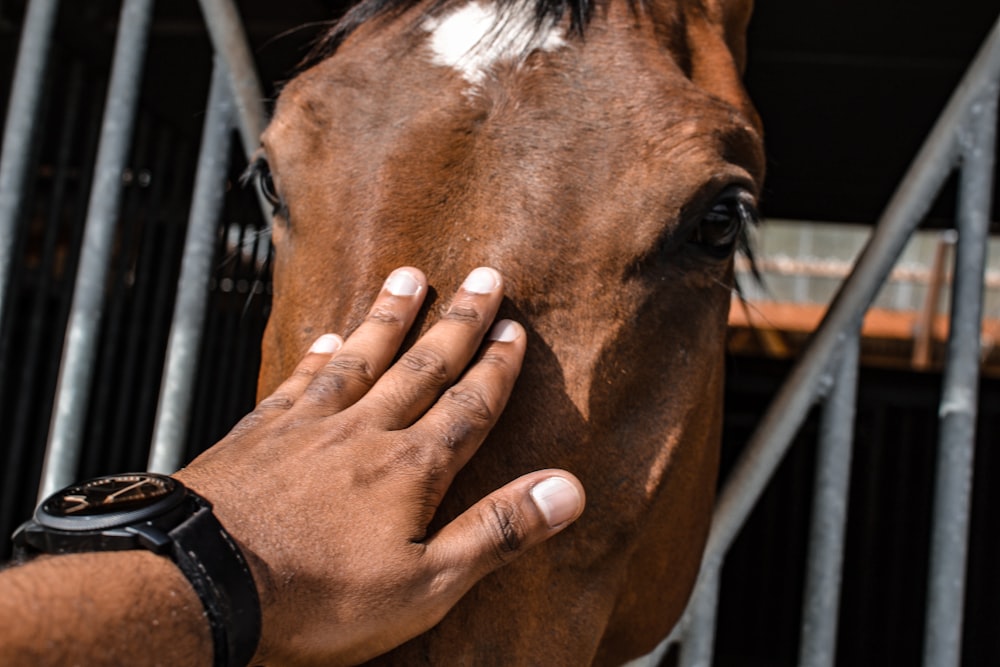 Get rid of worms! Deworming your horse is beneficial to their health. Horses can lose weight and even get sick from worms that are not treated.
Get rid of worms! Deworming your horse is beneficial to their health. Horses can lose weight and even get sick from worms that are not treated.
Worms that can Plague Horses are:
Threadworms
Roundworms
Tapeworms
Redworms
Stomach Hair Worms
Tapeworms
Bot Larvae
Large Roundowrns
Large Strongyles
Large Mouthed Stomach Worms
Lungworms
Pinworms
Deworming Your Horse
Deworming frequency can be based on how many horses are in the immediate area and what climate or part of the country you live in. Also, deworming in extreme temperatures such as the heat of summer or the freezing temperatures of winter can prove to be ineffective.
Deworming your horse can be a stressful process. If you have a horse that is sensitive to either the dewormer or the process (or both!) there are a few things you can try to make the experience more pleasant.
Practice Practice Practice
D
Wait until they are relaxed with their entire body before you move up their neck into their head.
It is key that you wait until the horse has a relaxed stance and is OK with you and the syringe touching their body (before moving on to the head!)
The key here is to take the time to familiarize your horse with the dewormer and get them to relax. It’s similar to a human having to get vaccinations. No one wants to go get shots.
Deworming can be stressful and people can dread the experience. Many horses feel the same way with dewormer. They can resist and can make the entire experience very difficult.
Patience Patience Patience
Try to picture the dewormer experience as a learning experience.
You want both you and your horse to be comfortable, relaxed, and trusting. If you can build your horse’s acceptance of the dewormer then you have accomplish a major goal.
Consider each small milestone progress and a step forward in your horses education. Try to visualize this experience as just that a teaching experience for your horse.
Use an empty syringe and fill it with applesauce or Apple juice or something sweet that horse might like. Some people use honey or molasses because it is thick yet sweet and it has the similar consistency to the wormer.
If you can eventually deworm your horse with molasses or honey or whatever else is in the syringe, then you’ll have then you will be successful with real dewormer .
You can also dip the end of the syringe in honey or molasses and that way your horse will be more apt to take the dewormer.
Don’t attempt to sneak up on your horse. Horses can smell and sense that you were trying to hide something and that only heightens their awareness and can make them even more resistant.

Important Steps to Follow
Key things to keep in mind when deworming your horse:
1. Make sure your horse doesn’t have hay or grain in its mouth
2. After administering the dewormer at a 45 degree angle lift your horses head because they tend to spit it out.
Lifting their head up can be done by just simply placing your hand under the jaw and pushing it carefully up. Many horses immediately want to spit out the do warmer and this hope helps them swallow it and not waste any.
If paste is not an option or if it’s too difficult or too much of a fight there are pellet dewormers available for horses. This is another option for those that can’t or don’t want to take the time to train your horse to accept a syringe.
Keep in mind if the pellets smell a bit medicinal the horse may or may not eat it depending on what it’s mixed with and how picky your horse is.
Deworming is a crucial step to keep ponies healthy. Picking up manure and not spreading in nearby areas or in the arena is also a good practice to keep your horse worm free.
Try 10 minutes a day or 10 minutes per visit of practicing with a dewormer syringe filled with apple juice or with molasses or even honey on the end of the syringe. Little steps each day will eventually add up to make it a much more pleasant experience for both you and your horse.
Related Content You Might Also Enjoy:
Shoo Fly! How to Beat Flies this Spring
BotFlies and Horses- Diagnosis, Care, and Tips
Is Your Horse Lame? This Could be the Cause…